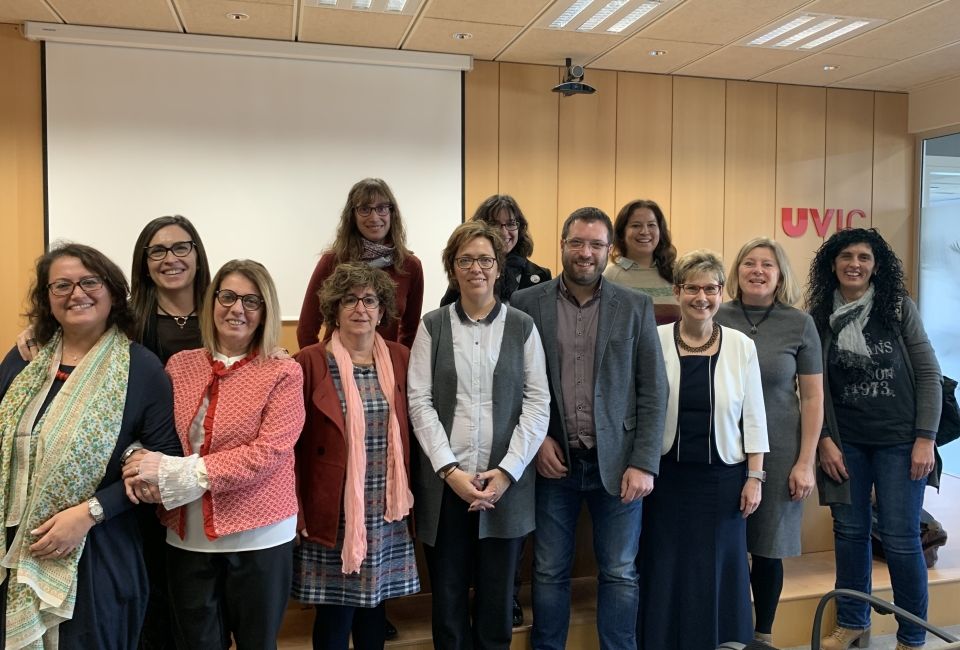
The 'Storytelling revisited' conference addresses how innovative formats are used in storytelling
Around eighty people participated in the first Storytelling revisited conference on the use of children's literature in English language learning in the Segimon Serrallonga Hall at the UVic last Wednesday. The event, which featured several international speakers, gauged the current state of this discipline, and laid the foundations for upcoming research and for future editions of the conference, which was established with a view to taking place annually. The idea for the conference arose from the Faculty of Education, Translation and Humanities (FETCH) and the event was organised jointly by the research groups GETLIHC (Gender Studies: Translation, Literature, History and Communication), GRELL (Education, Language and Literature) and TEXLICO (Contemporary Literary Texts: Study, Publication and Translation).
"Storytelling is obviously moving forward and modernising," says Mireia Canals, a member of GETLIHC, who believes that the conference highlighted this discipline as a "pedagogical, communicative, transmedia and interdisciplinary tool that enables all kinds of approaches, and which can be used in all kinds of situations." Among other examples, it is a good resource for narrating biographies, for use in pre-school teaching and in bilingual education, for intercultural education, to build identity and gender, and for enhancing multiple intelligences.
The classics, renewed
The importance of illustrations and the use of new and innovative materials in pre-school and primary classrooms was also emphasised. These are areas where according to Canals, "the classics still have a strong presence, but they are explained using new innovative communication formats, which are now a reality." At the same time, the conference looked at how storytelling is used at very young ages, and formulas that enhance the readers' interactivity and participation in the process of constructing the story. Indeed, new storytelling formats related to art and motivation emerged as the topics that will be the focus for the second edition of the congress, to be held in November next year.
The meeting brought together teachers, lecturers, researchers and students from knowledge areas as diverse as psychology, pedagogy, children's literature, gender, specific didactics, intercultural studies, transmedia and multiple intelligences. Some of those attending were students in the fourth year of the degree courses in Early Childhood Education and in Primary School Teaching majoring in English, and fifth year students on the double degree course in Early Childhood Education and Primary School Teaching, majoring in English. Four of these students took part in the final part of the conference, summarising everything that had been presented during the day in the form of an oral story. According to Mireia Canals, this "built bridges between academia and research."
The speakers included the doctor in Pedagogy Rossella Certini, from the University of Florence, Valeria Árva and Éva Benkő, from the Eötvös Loránd University in Budapest, and Chiara Lepri, from the University of Rome. The congress also included round table discussions with several blocks of brief communications, and a closing ceremony attended by the UVic-UCC's Vice-rector of Research and Knowledge Transfer, Jordi Villà.